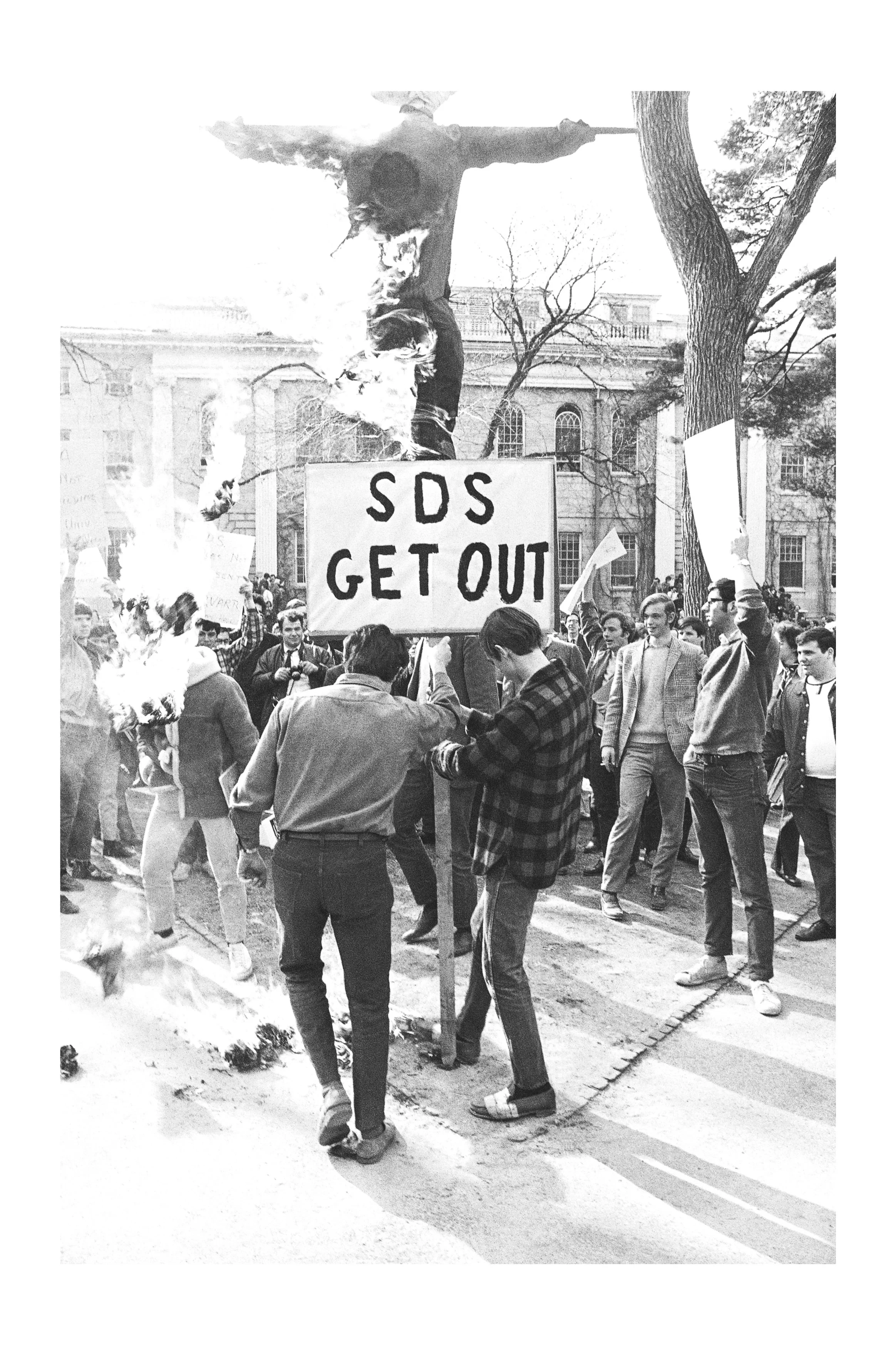
Resistance from the Right: Conservatives and the Campus Wars in Modern America
Academic Reviews
“At once a valuable historical contribution and a work of ripped-from-the-headlines timeliness, Resistance from the Right zeroes in on the crucible of the late 1960s when student protest went both mainstream and militant, and conservatives built a coalition and an ethos from the task of resisting it. Chronicling three pivotal years with meticulous precision grounded in extensive archival and oral history research, Shepherd definitively conveys how the New Right forged its distinctively puckish, trolling style in combat with—and imitation of—the sixties New Left and counterculture." —Sam Rosenfeld, author of The Polarizers: Postwar Architects of Our Partisan Era
“Resistance from the Right is a vital, urgent exploration of the right's long war on the university, showcasing that current attacks on higher education are nothing new but rather the result of a sixty-year battle to undermine a diversifying university. Truly a must-read." —Nicole Hemmer, author of Partisans: The Conservative Revolutionaries Who Remade American Politics in the 1990s
“Resistance from the Right is a superb addition to the growing body of scholarship on the history of the American right. Lauren Lassabe Shepherd convincingly argues that right-wing students on American campuses during the 1960s were unpopular but that popularity was not a prerequisite for them to build power. Rather, the student right’s path to power was its alignment with influential authorities both on and off campus. Based on voluminous archival research, including interviews the author conducted with a host of former right-wing campus activists, Resistance from the Right shows that our current campus wars are rooted in 60 years of right-wing organizing against real and perceived progressivism in the nation’s universities. A must read!” — Andrew Hartman, author of A War for the Soul of America: A History of the Culture Wars
"Resistance from the Right confidently places conservative thinkers and sponsors in conversation with students in an effort to reveal the expanse of the cultural battlefield of higher education. Shepherd’s meticulous and timely book highlights the right in the history of student activism." —Stefan M. Bradley, author of Upending the Ivory Tower: Civil Rights, Black Power, and the Ivy League
“Shepherd intriguingly argues that… conservative students were more united in their suspicions and fears of American liberals and leftists than in the anticommunism that they proudly espoused… Resistance from the Right offers something far more interesting, significant, and telling, a portrait of a relatively small number of conservative students proclaiming themselves the voice of a majority while actively engaged in conflicts among themselves and with an active student left, which was also small and divided.” —Elizabeth Tandy Shermer, American Historical Review
"Strong, unique, and well researched, this book addresses a major gap in the studies of American higher education in the protest era of the late 1960s and early 1970s. Digging deeply into a range of conservative organizations and actors, Shepherd offers a refreshing conversation about student activism in the late 1960s." —Linda Eisenmann, author of Higher Education for Women in Postwar America, 1945-1965
“Resistance from the Right places the campus conservatives of the late 1960s where they belong: not as a mere footnote, not as a mere quirk, but as a central formative part of American conservatism in the late 20th century. This book is an absolute must-read for anyone hoping to understand either American conservatism or American higher education.” —Adam Laats, author of Creationism USA, Fundamentalist U, and The Other School Reformers
“[Shepherd] introduces readers to unexplored opportunities for future historical study: extending the chronology through the 1980s and ’90s, historicizing the creation and arming of campus police vis-à-vis conservative calls for law and order, and further examining the relationship between higher education administrators and their benefactors. Resistance from the Right is a welcome addition to the scholarship bridging the history of education with histories of conservatism.“ —Maxwell Greenberg, History of Education Quarterly
“Anyone perplexed or concerned by this contemporary shift towards conservatism and privatization in higher education would do well to turn to Lauren Lassabe Shepherd’s Resistance from the Right: Conservatives & the Campus Wars in Modern America (2023).” —Emily Brooks, author of Gotham’s War within a War: Policing and the Birth of Law-and-Order Liberalism in World War II-Era New York City
In the Media
“BOOK REVIEW: Eight Books That Explain the University Crisis.”
The Atlantic
“Modern Conservatism was Born on College Campuses.”
Ian Ward, POLITICO Magazine
“The Right Uses College Campuses as Its Training Grounds.”
Scott Stern, Jacobin
“Young Americans for Freedom Hates Freedom.”
Jeet Heer, The Nation
Featured in Contingent Magazine’s 2023 Book List
“How Colleges Are Changing Their Rules on Protesting.”
Isabell Taft, New York Times
“The Trump-Harvard showdown is the latest front in a long conservative war against academia.”
Adam Gabbat, The Guardian
“Another Florida College Taps a Former State Lawmaker to be its Next President.” US News & World Report
“Squeezed from Both Sides.”
Karin Fischer, The Chronicle of Higher Education
“The Rise of the Campus Right.” Matt Reed, Inside Higher Ed
“Ohio Republicans Are Planning ‘Political Warfare’ Against Higher Education.” Zurie Pope, The Nation
“Conservatives Play Offense on Higher Education.”
Lexi Lonas Cochran, The Hill
“Columbia University 1968 Protests Have Parallels with 2024 Encampments.” Ben Tumin, Teen Vogue
“Conservatives have long been at war with colleges.”
Fabiola Cineas, Vox
“What Could Endowment Taxes under Trump Mean for Yale?”
Karla Cortes and Josie Reich, Yale Daily News
“Ignoring Bad Faith Right-Wingers Doesn’t Work Anymore. Debate or Debunk Them.” Matt Sheffield, Daily Beast
“The New College Gambit.”
Kathryn Joyce, In These Times
Kirkus
STARRED Review
A thoroughly researched, revelatory political history with abundant relevance for today. . . . Shepherd presents compelling evidence for the ways that these groups, although a minority on campus, have exerted long-lasting influence.

